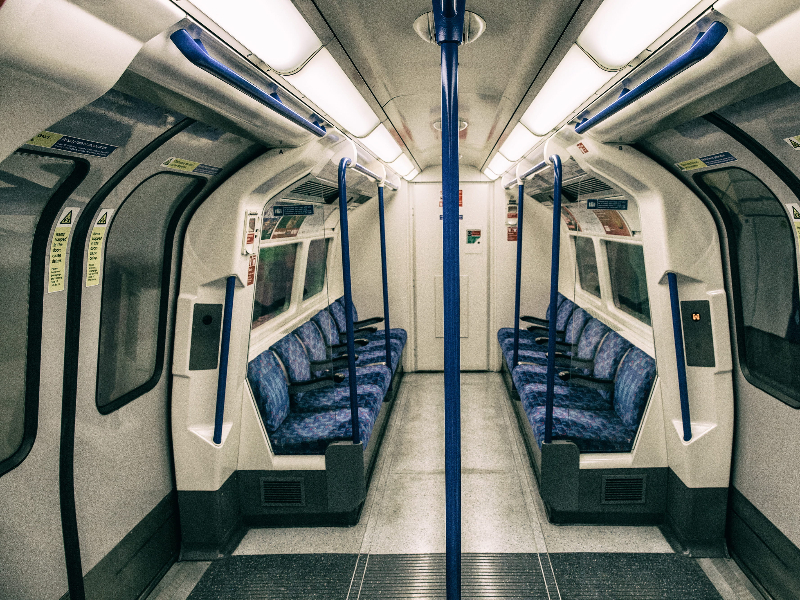More Sustainable Commuting Could Save Ten Billion Kg of CO2e
Revolutionising the commute is key to reducing UK carbon emissions, new research from Mobilityways argues. To mark World Car Free Day (22 September), Mobilityways has...
Read Full Article
Research examining the travel patterns of home workers has revealed that working outside the office can encourage unsustainable transport patterns, increased car dependency and reduced physical activity.
The research has won the Early Career Researcher Award at the 2020 Royal Town Planning Institute (RTPI) Awards for Research Excellence.
The paper, “Telecommuting and other trips: an English case study”, examines the implications of non-work travel on the sustainability of telecommuters’ travel patterns by comparing the travel behaviours of those who work from home at least once a week with other working adults.
The researchers conclude that by proactively addressing the accessibility of non-work destinations, planners can help telecommuters travel more sustainably.
“The counter-intuitive findings of the research concluded that the impact of online access to work, which allows for living in more dispersed locations, results in more unsustainable transport patterns, including increased car dependency as well as reduced physical activity."
–Janet Askew MRTPI
Consultant Town Planner and RTPI Awards Judge
Research for the paper was conducted by Dr Hannah Budnitz MRTPI from the University of Birmingham with Professor Lee Chapman, also from the University of Birmingham, and Dr Emmanouil Tranos from the University of Bristol.
Their research proposes that the sustainability of home workers’ travel patterns is more dependent upon the accessibility of non-work activities, than on the distance to the workplace for less frequent commuting journeys.
Using the National Travel Survey for England 2009-2016, the travel of those who identify themselves as working from home at least once a week are compared to other working adults by measuring and modelling the number and purpose of trips within a week's travel diary, independent of distance or mode.
This suggests that the proliferation of home working in light of COVID-19 may have less of an agreeable impact on sustainability than first thought. However, previous research has suggested that reducing your commute by just one day per week could save 379.2kg of CO2 emissions.
Announcing the award, judge Janet Askew MRTPI said: “The judges considered that this very relevant piece of research has the potential to make a vital contribution to policy-making for the post-COVID era.
“The counter-intuitive findings of the research concluded that the impact of online access to work, which allows for living in more dispersed locations, results in more unsustainable transport patterns, including increased car dependency as well as reduced physical activity.
“The work carried out was thorough and robust, offering the potential for further research into sustainable land use and transport planning, with wider application internationally.”
The judging panel for this year’s Research Awards comprised 30 public and private sector representatives as well as academics. The winners of all four categories were announced on 7 September in an online ceremony.
Picture: A photograph of an empty London underground train carriage
Article written by Ella Tansley | Published 16 September 2020
Revolutionising the commute is key to reducing UK carbon emissions, new research from Mobilityways argues. To mark World Car Free Day (22 September), Mobilityways has...
Read Full ArticleEmployees in England are no longer being asked to work from home, as the government removes Plan B rules. But is this change as simple as encouraging a mass return to the...
Read Full ArticleAfter working from home for almost a year, a third of UK workers say they miss their morning and evening commute. Recruiter Randstad UK, asked home workers how they...
Read Full ArticleIt’s been almost a whole year of working from home for many of us, and some are predicting when offices will reopen. 54 per cent of us are apparently happy to...
Read Full ArticlePlanning how employees can travel back to the office safely and efficiently will be a major focus for many FM professionals, according to research by ParkOffice. 15+...
Read Full ArticleA new survey of 1,000 UK office workers has revealed that 54 per cent are happy to continue working from home for as long as necessary. 30 per cent are happy...
Read Full ArticleLeesman has presented the key highlights of their latest data exploration into home working and employee experience. The workplace experience assessment benchmark...
Read Full ArticleMost of us now have some kind of home office set-up, but are we actually working remotely or just working from home? Julie Jarvis, Managing Director of property &...
Read Full ArticleResearch from the BBC shows that fifty of the biggest UK employers have no plans to return all staff to the office full-time in the near future. The BBC questioned 50...
Read Full ArticleResearch suggests that reducing your commute by just one day per week could save 379.2kg of CO2 emissions. This amount of carbon is equivalent to 2,433km on a...
Read Full Article